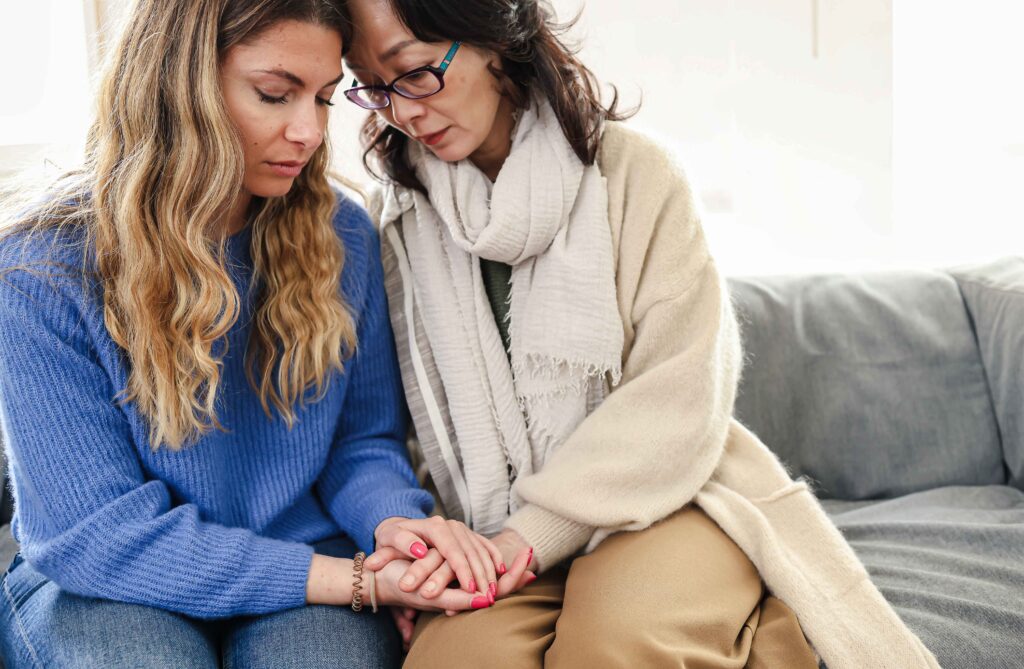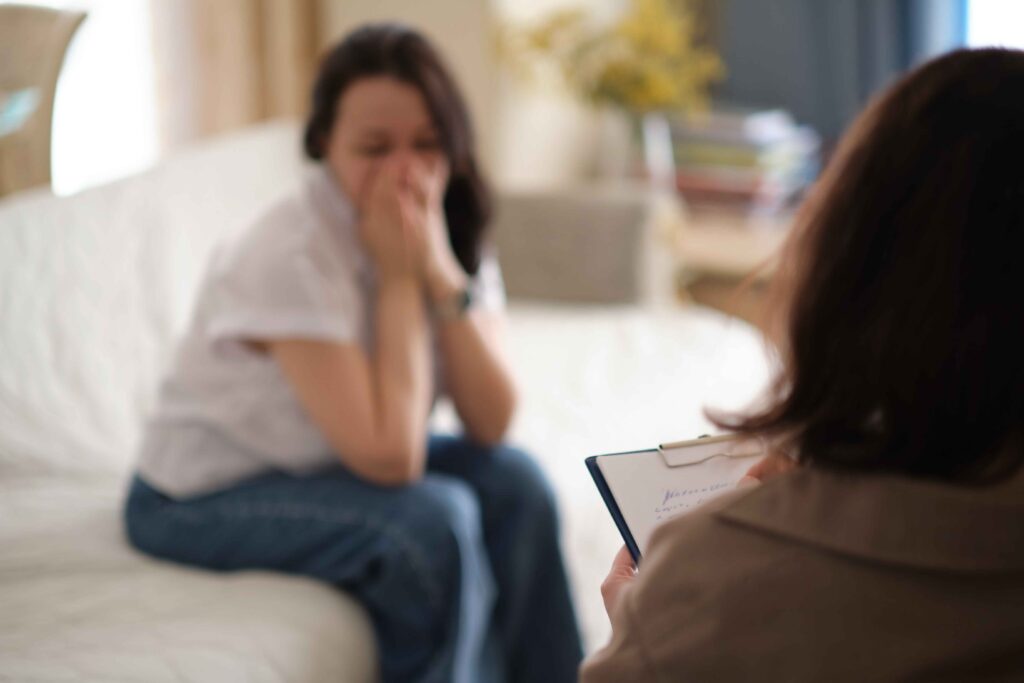In the face of adversity, our emotional well-being often suffers the most. The aftermath of traumatic experiences can leave us feeling shattered, lost, and devoid of hope. But amidst the darkness, a flicker of light is always waiting to be reignited. It is the human spirit’s innate ability to heal and find solace, even in the most challenging circumstances. In this digital age, where information is readily available at our fingertips, it is essential to navigate the vast array of resources and tools that can aid in our journey towards healing.
This article will serve as a guiding light, providing valuable insights and practical strategies for restoring emotional well-being after traumatic experiences. From therapy and self-care practices to community support and the power of positive thinking, we will explore the transformative power of hope and resilience. Together, we will embark on a journey of healing, rediscovering our strength, and finding hope in the darkest of times.

Understanding trauma and its impact on emotional well-being

Trauma comes in many forms, and its impact on our emotional well-being can be profound. Whether it is the result of a natural disaster, physical or emotional abuse, or a life-altering event, the effects can leave lasting scars. Trauma can disrupt our sense of safety, trust, and self-worth, making it difficult to navigate the world and form meaningful connections.
The first step in restoring emotional well-being after trauma is to understand its impact on our lives. Trauma can manifest in various ways, such as anxiety, depression, post-traumatic stress disorder (PTSD), or even physical symptoms. Recognizing these signs and acknowledging trauma’s impact on our lives is crucial in healing.
The journey to healing: Steps to restore emotional well-being
Healing from trauma is a journey that requires time, patience, and self-compassion. It is not a linear process, and everyone’s path to healing is unique. However, there are steps we can take to restore our emotional well-being and reclaim our lives.
One of the first steps is to prioritize self-care. Taking care of our physical, mental, and emotional needs is essential for healing. This includes getting enough sleep, eating nutritious meals, engaging in regular exercise, and practising relaxation techniques such as deep breathing or meditation. Self-care also involves setting boundaries, saying no when necessary, and engaging in activities that bring us joy and fulfilment.
Another crucial step in the healing process is to develop healthy coping mechanisms. This may involve seeking professional help, engaging in therapy, or joining support groups where we can connect with others who have gone through similar experiences. It is important to remember that healing is not a solitary journey and that seeking support is a sign of strength, not weakness.
Seeking professional help: Therapies for trauma recovery
While self-care practices can be beneficial, seeking professional help is often necessary for trauma recovery. There are various therapeutic approaches that have proven to be effective in treating trauma and restoring emotional well-being.
Cognitive-behavioural therapy (CBT) is a widely used therapeutic approach that helps individuals identify and challenge negative thoughts and behaviours. It aims to change unhealthy patterns of thinking and replace them with more positive and adaptive ones. CBT can be particularly helpful in managing anxiety, depression, and PTSD symptoms.
Eye Movement Desensitization and Reprocessing (EMDR) is another therapeutic approach that has shown promising results in trauma recovery. It involves guided eye movements while recalling traumatic memories, helping to reprocess and desensitize the emotional charge associated with these memories. EMDR can be effective in reducing the intensity of trauma-related symptoms and promoting healing.
Self-care practices for emotional healing
Self-care is an integral part of the healing process after trauma. It involves taking intentional actions to nurture and care for ourselves, both physically and emotionally.
One self-care practice that can be beneficial is journaling. Writing down our thoughts and feelings can help us gain clarity, process emotions, and release pent-up stress. It can also serve as a tool for self-reflection and personal growth.
Engaging in regular physical exercise is another powerful self-care practice. Exercise releases endorphins, which are natural mood-boosting chemicals in the brain. It can also help reduce anxiety and depression symptoms, improve sleep quality, and increase overall well-being.
Building a support system: Friends, family, and community
Having a solid support system is crucial in the healing process after trauma. Surrounding ourselves with friends, family, and a supportive community can provide a sense of belonging, connection, and validation.
Opening up to trusted loved ones about our experiences can be difficult but incredibly healing. Sharing our stories with those who care about us can provide a sense of relief and understanding. It can also help us feel less alone in our journey and provide a support network to lean on during challenging times.
The Role of Mindfulness and Meditation in Healing from Trauma
Practising mindfulness and meditation can be powerful tools in healing from trauma. Mindfulness involves being present at the moment and observing our thoughts and feelings without judgment. It can help us develop a greater sense of self-awareness and acceptance, allowing us to navigate difficult emotions with compassion and resilience.
Meditation, on the other hand, involves focusing our attention and eliminating the noise of the outside world. It can help calm the mind, reduce stress, and promote relaxation. Regular meditation practice can also enhance our ability to regulate emotions and develop a deeper sense of inner peace.
Exploring alternative healing modalities: Art therapy, music therapy, and more
Traditional therapies may not resonate with everyone, and that’s where alternative healing modalities come into play. Art therapy, for example, allows individuals to express themselves creatively through various art forms. It can be a powerful tool for processing emotions, reducing anxiety, and promoting self-discovery.
Music therapy is another alternative healing modality that can be beneficial in trauma recovery. Listening to or creating music can evoke powerful emotions and serve as a means of self-expression. It can also help regulate emotions, reduce stress, and promote relaxation.
Creating a safe and nurturing environment for healing
Creating a safe and nurturing environment is essential for healing from trauma. This involves setting healthy boundaries, both in our relationships and with ourselves. It means surrounding ourselves with people who support and validate our experiences, and who encourage our growth and healing.
Taking steps to create a physically safe environment is also crucial. This may involve making changes to our living space to promote feelings of security, implementing safety measures, or seeking professional help if necessary.
The importance of self-compassion and forgiveness in the healing process
Self-compassion and forgiveness play a vital role in the healing process after trauma. It is natural to feel anger, resentment, or even guilt towards ourselves or others involved in the traumatic event. However, holding onto these negative emotions can hinder our healing journey.
Practising self-compassion involves treating ourselves with kindness, understanding, and acceptance. It means acknowledging our pain and suffering without judgment and offering ourselves the same compassion we would extend to a loved one.
Forgiveness, on the other hand, does not mean condoning or forgetting the traumatic event. It is a personal choice to release ourselves from the burden of carrying resentment or anger. Forgiveness can be a powerful act of self-healing, allowing us to let go of the emotional weight that holds us back from moving forward.
Moving forward: Embracing hope and resilience after trauma
Healing from trauma is a journey that requires courage, perseverance, and resilience. It is about finding hope in the midst of darkness and rediscovering our inner strength. While the journey may be challenging, it is important to remember that we are not defined by our past experiences. We have the power to shape our future and create a life filled with joy, meaning, and purpose.
By understanding trauma, seeking professional help, practising self-care, building a support system, and embracing self-compassion, forgiveness, and alternative healing modalities, we can restore our emotional well-being. We can move forward with hope, resilience, and a renewed sense of purpose. Together, we can navigate the path to healing, finding solace and strength in the face of adversity.

